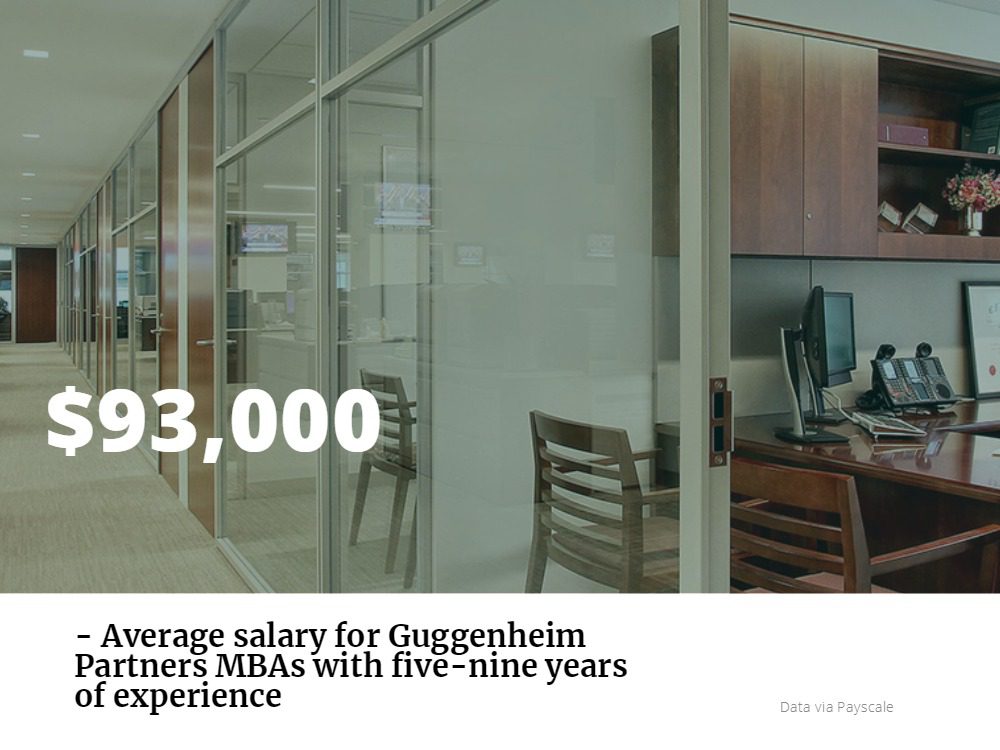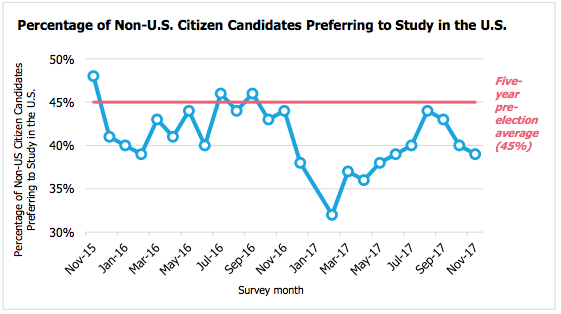Columbia Business School Professor On Keeping Your New Year’s Resolutions

Every year, half of all Americans make New Years resolutions. Unfortunately, according to the latest Marist Poll, one-third will fail. So, how do you make sure you succeed? Columbia Business School professor of business Gita Johar has advice for holding fast to your goals. Her trick: “Make it painful to break your resolution.”
How to Make Breaking a New Year’s Resolution Painful
The idea is to impose penalties on yourself for failing to keep your resolution. This can make it far more likely that you’ll follow through. By associating a negative outcome with failure, you’ll resist temptations to quit. “Self-punishment leads to heightened goal accessibility,” Johar believes.
And the idea of adding self-imposing penalties and restrictions is not new. Its origin goes back to ancient Greece and the Odyssey when Odysseus tied himself to his ship’s mast to resist the call of the Sirens. For modern times, the concept can be applied to using a smartphone app to reduce screen time or using an alcoholism drug to stop alcohol abuse.
“Enduring pain, in other words, is not just a nudge to do better in the future but also an inward sign of self-control,” Johar’s research explained. “You feel you have more self-control if you’re able to withstand pain.”
Proof Is in the Pudding
To prove her concept of using pain to succeed, Johar and her colleagues conducted a “painful” experiment that tested students’ willingness to drink bitter juice and listen to unpleasant noise.
In one experiment, 205 undergraduate students were tasked with thinking about a time they had too little self-control and overspent. They were then asked to read either an article about how negative sensory experiences were an indicator of self-control or how negative experiences had no indication of self-control. All students were then asked to drink bitter juice.
The students who read that self-control and negative experiences go together drank more bitter juice than others—they punished themselves for their failure with money. “Upon recalling a self-control failure that one feels responsible for, individuals who believe their personal qualities can change are more likely to endure negative experiences,” explained Johar.
The takeaway is that if you want to reach your 2019 New Years resolutions, you need to aim high and back up your goals with firm self-punishments when you fail. Read more about this idea on the Columbia Business School news site.
This article has been edited and republished from its original source, Clear Admit.
Chicago Booth, Northwestern Kellogg Top Economist 2018 Rankings

The newest Economist best MBA rankings for full-time programs is officially out, with two Chicago schools topping the list.
Top MBA Recruiters: Guggenheim Partners

For graduating MBA students, the connections made through their university and business school program can be a crucial part of starting a career. At a top program like the Kellogg School of Management at Northwestern University, for instance, 73.9 percent of the 2017 graduating class who accepted full-time offers had the opportunity facilitated by the school. Roughly 30.1 percent of these school-facilitated offers were the results of on-or off-campus interviews.
Not only can your university be instrumental in setting up long-lasting career opportunities, but the companies that seek and recruit MBA students also play an important role. Companies like Guggenheim Partners, based in New York and Chicago with office locations throughout the world, are actively looking for talented MBA students and graduates for opportunities that could be the start of brand new career. And the best part? They’ll come to you.
What is Guggenheim Partners?
Guggenheim partners is a global investment and advisory firm that believes in finding innovative solutions to deliver long-term results to their clients. The company, which is headquartered in New York City and Chicago, operates through three main businesses: investments, securities, and insurance services.
Guggenheim Partners is the culmination of years of the Guggenheim family business, dating back to the late 1800s. Today, the firm is operating with more than $305 billion in assets across a variety of managed accounts and funds. Over 2,400 professionals are currently staffed at the firm across six countries, and roughly 45 percent of the independently owned company is owned by employees themselves.
Why MBAs Love Guggenheim Partners?
One of the cornerstones of Guggenheim Partners today is their focus on finding innovative solutions to complex problems. In hiring, they seek creative people who can perform at high levels, take pride in their work and think creatively. In a word? An MBA.
Guggenheim Partners jobs might also be attractive to MBA graduates because they don’t expect a long resume of professional experience to join their team. According to Payscale, the largest percentage of employees (roughly 40 percent) have between one and four years of professional experience, still earning paychecks of up to $57,000 per year, on average. For MBAs with more experience, of course, it only gets better: the average pay for employees with five to nine years of work experience reveals salaries averaging $93,000 per year.
It also does appear that the company rewards those with advanced degrees. While there is no data on employees with MBAs directly, Payscale does note that those with the company’s highest salary average (around $110,000 per year) are those with Master of Science degrees.

Life at Guggenheim Partners
MBA graduates looking for full-time Guggenheim Partners jobs will likely begin as full-time analysts or associates at one of several recruitment groups around the country. Groups from both the Investments and Securities segment of the company recruit full-time Analysts, such as Sales & Trading (NY and Boston), Research (NY), Corporate Credit (NY), Operations (Chicago) and several others. Those interested in full-time Associate positions will be recruited through the Investment Banking division of Guggenheim Securities, based in New York.
On Ivy Exec, a website that gathers company and employment data, Guggenheim Partners jobs received fairly high marks across the board. A full 100 percent of surveyed employees said they would recommend the job to a friend, 80 percent said it was a great place to work, and 80 percent said they are proud to have the company on their resume.
Guggenheim Partners Jobs
Guggenheim Partners recruit students for full-time jobs in their final year of study, seeking motivated candidates with an impressive academic background and strong interpersonal skills. They also look for graduates with the potential to take on leadership roles while being able to work effectively on a team.
Students can interview on campus for full-time associate or analyst positions, apply directly for open entry level roles, or get their foot in the door even sooner by joining the company’s internship program. The program, which was created to provide students with “visibility and exposure into the day-to-day activities of key business units within Guggenheim Partners” goes above and beyond to create opportunities for advancement, including networking opportunities, speakers, performance evaluations and mentoring.
The Guggenheim Partners internship program is available at all office locations, though some locations offer special focuses for the internship in fields like Investment Banking, Commercial Real Estate, Corporate Credit, and more.
For a list of current opportunities available at Guggenheim Partners, you can check out their career page here.
Are International MBAs Avoiding the United States?

Based on data from the most recently Graduate Management Admissions Council (GMAC) monthly survey, interest in U.S. business schools among international MBA candidates is still below pre-2016 election levels. In fact, it’s below the previous five-year average for each month since the election. And in each of the last three months—between September and November 2017—international application volume has decreased.

Image via GMAC report.
Just before Donald Trump’s election victory, approximately 46 percent of international MBA applicants surveyed by GMAC responded that they would prefer to study in the United States—above the 45-percent, five-year, pre-election average. But not once since November 2016 has that been the case. The percentage of international applicants indicating a preference for U.S. business schools plunged at the beginning of 2017, to below 40 percent in January and just over 30 percent in February. Summer 2017 saw a bit of a rebound—though never reaching 45 percent—but international interest has again declined this fall.
Of 1,992 non-U.S. candidates surveyed between September and November 2017, 23 percent shared that they had previously thought about applying to a U.S. program but have since changed their mind. As for the reasons behind applicant reluctance:
- 54 percent cited concerns about obtaining a job in the U.S. post-graduation
- 51 percent admitted concerns about gaining a student visa
- 47 percent cited safety and security concerns
- 42 percent talked about the political environment
- 39 percent admitted racism and discrimination fears
In addition, when GMAC surveyed nearly 700 U.S. MBA programs, about half admitted that they had received fewer international applications than in the previous year. Only 31 percent reported an increase in international applications. Another 20 percent reported no significant change.
For additional insights from GMAC as well as continued tracking of international candidate interest, visit the GMAC research website.
This article has been edited and republished with permissions from our sister site, Clear Admit.
In Search Of The Best Seattle International MBA Programs

An MBA education by itself is valuable in today’s economy, but some element of international business education or experience is essential for students hoping to get a full picture of the global marketplace.
Cambridge Judge Professor Talks Ethics in the Workplace

Business school isn’t just about educating professionals in the classroom. The best schools, such as Cambridge Judge Business School, take their education a step further with business research. That’s why recently, David De Cremer, a KPMG Professor of Management Studies at Judge, wrote an article for Harvard Business Review about workplace behavior titled, “6 Traits that Predict Ethical Behavior at Work.” Continue reading…

